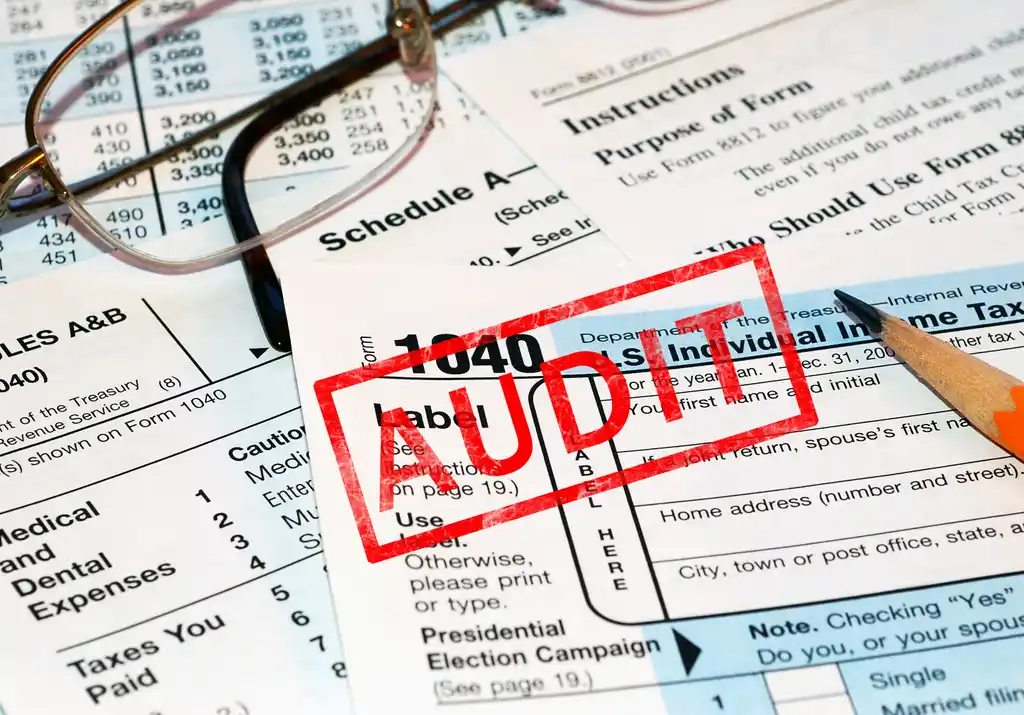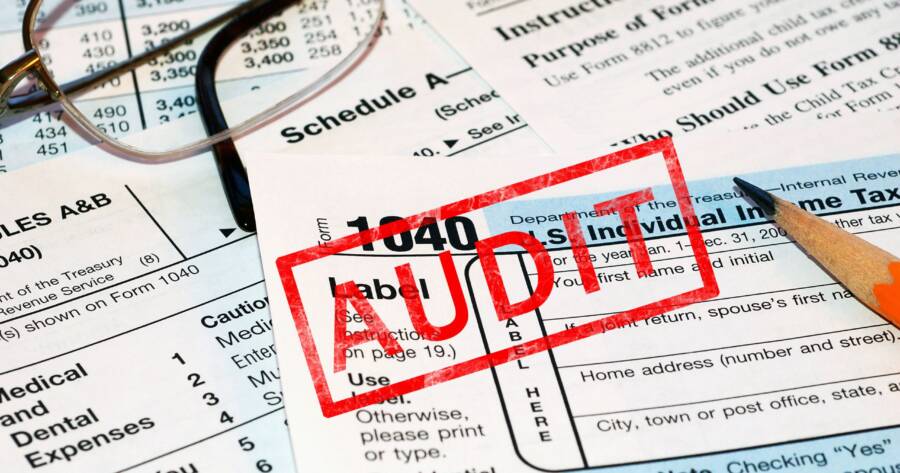Getting audited is something everyone wants to avoid. Even if you’ve been careful and honest in filing your taxes, mistakes do happen. Having the IRS go over everything with a fine-toothed comb is bound to be a stressful experience. Over the past few years, the number of IRS audits has trended down. This was largely because of funding limitations. However, the federal government has given the IRS a financial boost ahead of the 2020 tax season. Expert observers believe this essentially increases your chances of being audited this year.
Here’s the good news. There are concrete steps you can take to reduce your chances of being targeted for an IRS audit. The key is to understand the types of claims and line items that trip red flags in the IRS system. If you can avoid those, you will likely prevent tax officials from wanting a closer look.
Your Odds of Being Audited Are Low
Statistics from 2017 indicate that nearly one million Americans were audited that year. While that might sound like a lot, it represents only about 0.5% of the total number of tax returns submitted that season. Thus, from a probability standpoint, your chances of being audited are very low.
That said, there are caveats and exceptions. Every year, the IRS conducts a bunch of random audits. You know, just to keep taxpayers on their toes. You’re also more likely to be audited if your annual income is either very high or very low. Tax officials tend to scrutinize people in both situations. Here are some tips to potentially avoid an audit.
Tip #1: Stay Current
Some people aren’t as attentive as others when it comes to filing their tax returns. If you’re behind on your filings, the IRS has likely already flagged you. They will check things carefully when you do finally get caught up. You can avoid drawing attention by staying current on your tax filings. That means you should submit a return every year. Yes, even if you had no income or didn’t owe any taxes.
Tip #2: Use an Enrolled Agent to Prepare Your Taxes
Unfortunately, tax season is also scam season for shady tax preparers. Many dishonest crooks seek to inflate their earnings by urging you to claim benefits or deductions that you are not legally entitled to. Lots of these scammers promise to only take a small percentage of your refund as payment. So it’s in their own selfish interests to falsely make your refund as high as possible.
This isn’t the only reason to be careful about who you hire to do your taxes. You’re also handing over sensitive information like your Social Security Number, address, income, and financial details.
The best way to avoid these situations is to use an enrolled agent to prepare your tax returns. Enrolled agents are registered with the IRS, so you can be sure they’re on the level. Alternatively, you can use a certified public accountant (CPA) or a tax attorney. At the end of the day, remember that you are the one responsible for your tax filings, regardless of who prepared it. That shady tax preparer will be long gone (with your money) by the time the IRS decides to audit you.
Tip #3: Be Neat, Diligent, and Error-Free
If you prepare your tax return by hand, it’s vitally important that your penmanship is perfectly legible. When the IRS can’t tell your 1s from your 7s or your 0s from your 6s, they can’t evaluate your filing properly. This, in turn, boosts the likelihood that they will call you in for an audit.
The same is true of errors. Make sure you enter all line items in the right place. Always double-check your arithmetic before finalizing your submission. If you find the whole process confusing or overwhelming, get help from a reputable pro. It’s always a good idea to fill in tax forms electronically, to avoid any misinterpretations of sloppy handwriting. Even if you don’t E-File your taxes, you can print the forms and still mail them in.
Tip #4: Understand Items the IRS Considers Suspicious
The IRS tends to look more closely at people with very high incomes and very low incomes. Their reasoning makes sense. Many high-earning individuals try every trick in the book to reduce their tax liabilities. Likewise, claiming very little or no income can also represent an effort to sidestep the taxman. If you were a very high or very low earner in 2019, you should prepare yourself for the possibility of an audit.
Similarly, the IRS views certain types of sudden year-over-year changes as suspicious. If you made $150,000 last year, then suddenly drop to $8,000, they will raise an eyebrow. The same goes for tax deductions. If you’ve made modest claims in the past (or none at all), then suddenly donate 25% of your income to charity, the IRS will likely think you’re trying to pull something sneaky.
Round numbers also tend to draw attention. For example, if you sold some securities for a profit of exactly $5,000, that seems a little too convenient. The IRS is going to take a closer look at everything else on your return because such perfect financial sums almost never happen in the real world.
The bottom line is simple. Honesty is the best policy. You’ll never have anything to worry about if you just tell the truth on your tax return.
Tip #5 Watch Out For Tax Credit Claims
According to our resident CPA expert, one of the biggest triggers for an instant audit comes from claims of tax credits — especially refundable ones which trigger a payment to the taxpayer. This is the primary rationale behind delaying payments for individuals claiming the earned income tax credit, who can’t expect to receive a refund until mid-February.
What To Do If You Are Audited
If you defy the odds and end up getting audited, the most important thing is not to panic. Read the IRS letter carefully, as there are two types of audits. It could be a document matching audit, or a complete in-person audit. Document matching audits usually make simple, benign requests for additional supporting documentation for certain line items. Provided you can supply the desired materials, they usually aren’t anything to be too worried about.
In-person audits aren’t necessarily a cause for alarm either. However, you should definitely show up prepared. It’s a good idea to at least consult a tax attorney or CPA. It’s an even better idea to hire a professional to represent you during the audit. The IRS will sometimes use your lack of technical tax knowledge to its own benefit. Having a lawyer or accountant with auditing experience represent you during the audit ensures they can’t confuse you.
Should you decide to attend the audit yourself, a good rule of thumb is to avoid volunteering information. People often get chatty when they’re nervous. If you’re chatty, you might say the wrong thing. Only answer the questions you are asked and do not offer unsolicited details, no matter how innocent they may seem.
Finally, remember that higher taxes and penalties are not the only possible outcome. About 3% of the audits conducted by the IRS in 2017 resulted in the person under investigation actually being given a larger refund than they initially expected.
 Shutterstock
Shutterstock







